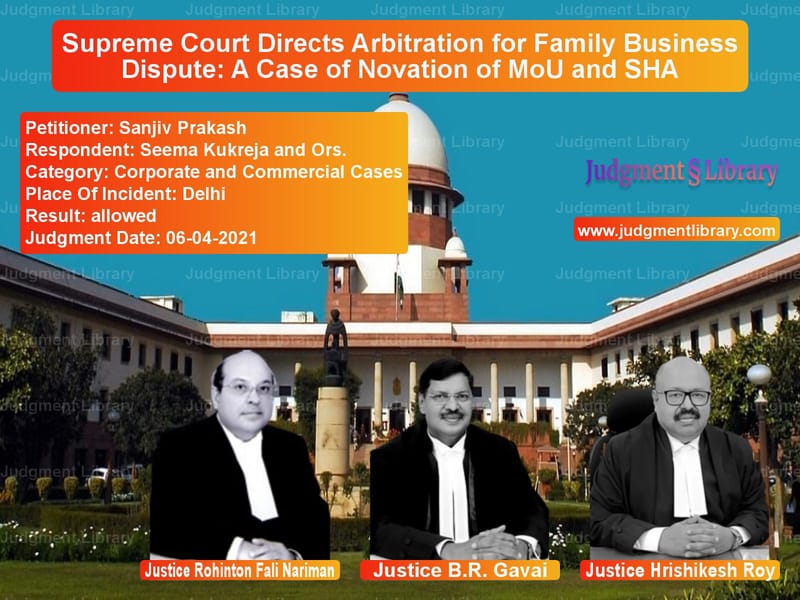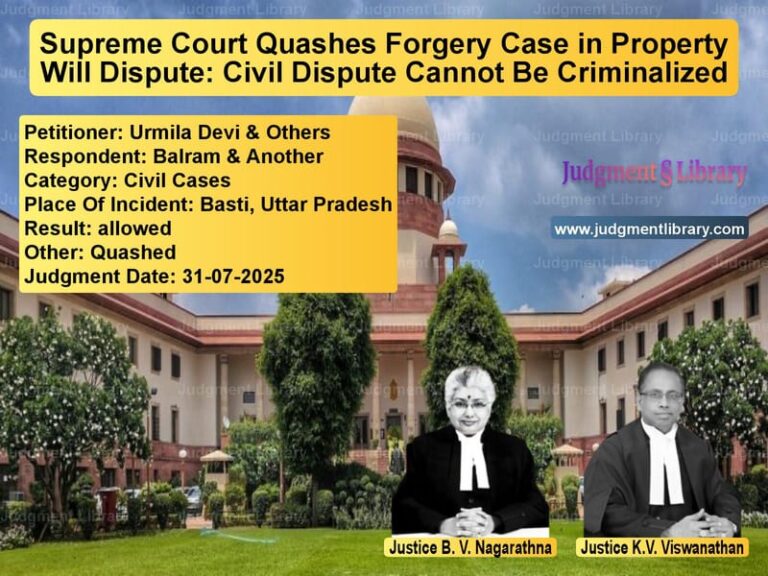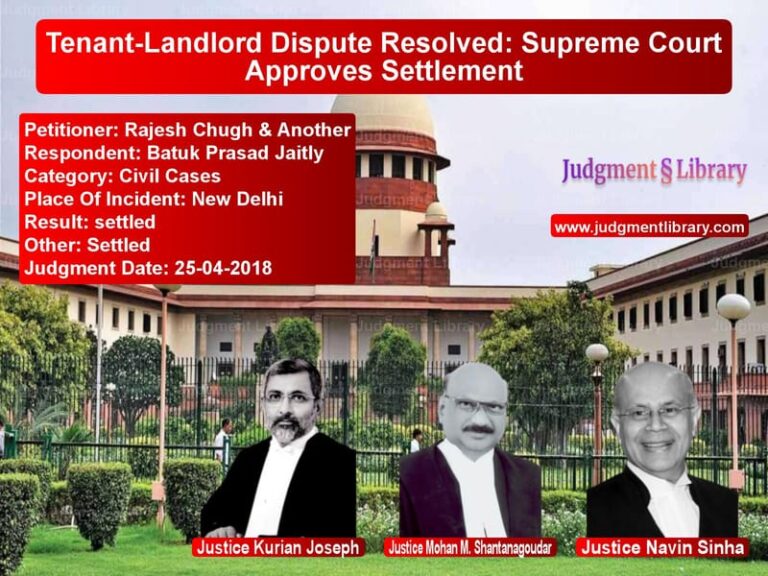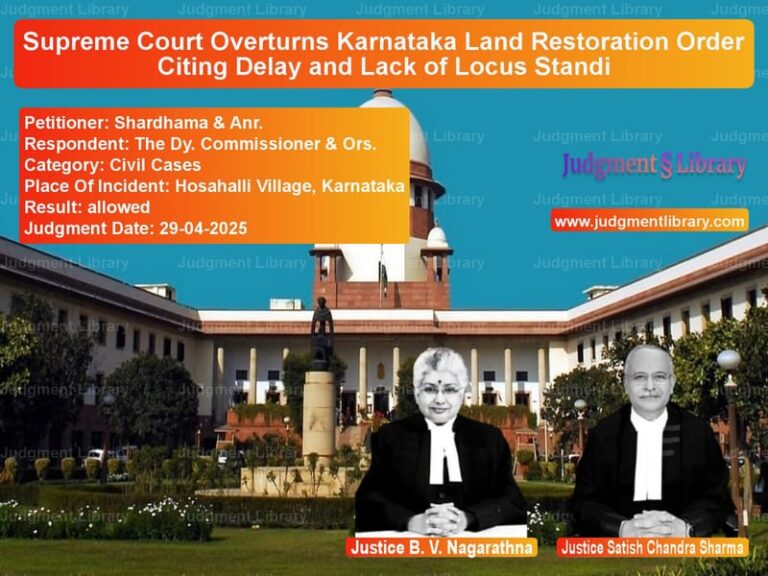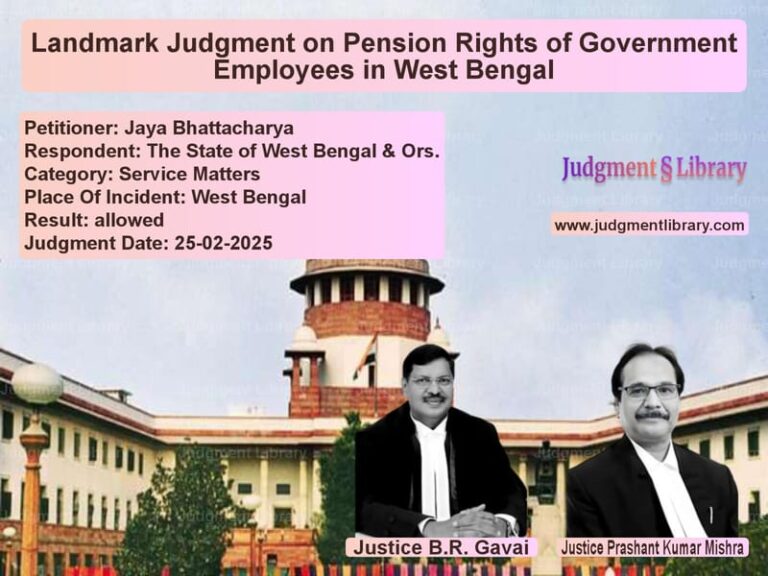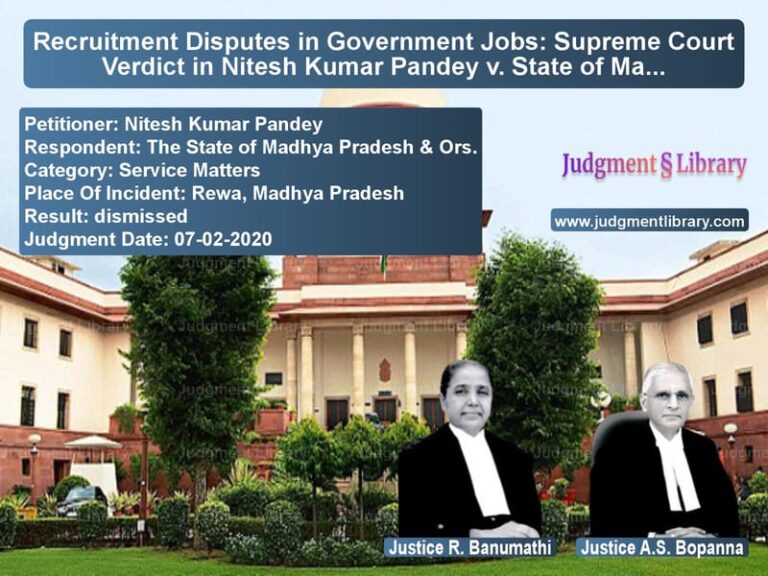Supreme Court Directs Arbitration for Family Business Dispute: A Case of Novation of MoU and SHA
The Supreme Court of India recently ruled in Sanjiv Prakash v. Seema Kukreja & Ors., a significant case that addressed the issue of arbitration in family business disputes. The judgment centered around a Memorandum of Understanding (MoU) and a Shareholders’ Agreement (SHA) entered into by members of the Prakash family regarding the management and ownership of their company, ANI Media Pvt. Ltd.
Background of the Case
The dispute arose from a long-standing family business involving the Prakash family, consisting of Prem Prakash, Daya Prakash, Sanjiv Prakash, and Seema Kukreja. The company was initially founded in 1971 as Asian Films Laboratories Pvt. Ltd. and later renamed ANI Media Pvt. Ltd. in 1997. Over the years, the company received significant investment from Reuters, which led to the drafting of an MoU in 1996 to govern the relationship between the family members and Reuters.
The MoU and subsequent SHA outlined the management structure of the company, including the ownership distribution and the decision-making processes. The MoU stipulated that, in the event of disputes, the matter would be resolved through arbitration. However, disputes arose between the family members regarding the transfer of shares and the enforcement of the MoU, leading to Sanjiv Prakash invoking the arbitration clause of the MoU.
Seema Kukreja and Daya Prakash, however, argued that the MoU had been superseded by the SHA, which they believed nullified the arbitration clause of the MoU. The issue of whether the MoU was still valid and whether arbitration should proceed under the terms of the SHA was brought before the Delhi High Court, which dismissed Sanjiv’s plea to refer the matter to arbitration.
Petitioner’s Arguments (Sanjiv Prakash)
- The petitioner argued that the MoU, despite being superseded in certain aspects by the SHA, still contained binding provisions related to arbitration that should be enforced.
- Sanjiv Prakash emphasized that the MoU was a family settlement that created special equity between the parties and should not be treated as a mere contractual agreement.
- He relied heavily on the MoU’s arbitration clause, asserting that the disputes regarding the shareholding and management of the company should be referred to arbitration as stipulated in the MoU.
- The petitioner contended that the SHA, which was signed later, did not supersede the MoU in its entirety, and that the arbitration provision of the MoU should still be applicable.
Respondent’s Arguments (Seema Kukreja, Daya Prakash, and Reuters)
- The respondents argued that the MoU had been superseded by the SHA and that the family members had agreed to new terms, including provisions related to dispute resolution.
- The respondents pointed out that the MoU was only intended to govern the internal family arrangements, while the SHA governed the relationship between the family and Reuters.
- They claimed that the MoU’s provisions were no longer valid since they were incorporated into the SHA, which explicitly did not include the arbitration clause of the MoU.
- The respondents also argued that the MoU could not bind the parties to arbitration in matters related to the SHA, which was a more recent and comprehensive agreement.
Supreme Court’s Analysis and Judgment
The Supreme Court reviewed the facts of the case and the legal arguments presented by both parties. The Court examined the issue of whether the MoU had been effectively novated by the SHA, and whether the arbitration clause in the MoU was still applicable. The key findings of the Court were as follows:
- “While the SHA supersedes certain aspects of the MoU, the arbitration clause in the MoU remains enforceable, as it is a separate provision that was not explicitly annulled by the SHA.”
- “The MoU cannot be considered void or inoperative merely because the SHA later amended certain provisions. The arbitration clause still applies to disputes arising under the MoU and should be respected.””
- “Novation of the MoU by the SHA does not nullify the arbitration agreement. A new contract cannot automatically supersede the arbitration agreement unless it specifically addresses the issue of dispute resolution.””
- “Disputes arising from a family business arrangement, especially involving a long-standing relationship between family members, should be settled through the arbitration process specified in the MoU to ensure fairness and avoid unnecessary legal delays.””
The Court concluded that the matter should be referred to arbitration as per the terms of the MoU and allowed the petition filed by Sanjiv Prakash. The Court appointed a retired judge to act as the sole arbitrator and directed the parties to resolve their disputes under the arbitration procedure set forth in the MoU.
Key Legal Principles Reinforced by the Judgment
- Novation and Supersession: The judgment clarified that even when a later agreement, such as the SHA, supersedes parts of an earlier contract (the MoU), the arbitration clause in the original agreement can still remain valid if not explicitly revoked.
- Enforceability of Arbitration Clauses: The ruling reinforces that arbitration clauses, even in family agreements, can be enforced as long as they are part of a valid contract.
- Family Business Disputes: The judgment highlights the importance of resolving disputes arising from family business arrangements through arbitration, ensuring impartiality and reducing prolonged litigation.
Impact of the Judgment
This ruling has significant implications for the enforceability of arbitration clauses in family business agreements, particularly in cases where one contract supersedes another. It reinforces the principle that arbitration is a preferred method for resolving disputes, even in the context of family disputes, provided the contract includes an arbitration agreement.
Conclusion
The Supreme Court’s decision in Sanjiv Prakash v. Seema Kukreja provides clarity on the validity of arbitration clauses in agreements, even when the underlying contract has been superseded or novated by a subsequent agreement. The judgment underscores the importance of adhering to contractual dispute resolution mechanisms, especially in cases involving complex family business relationships. By ensuring that the arbitration clause of the MoU is respected, the Court has upheld the integrity of the arbitration process as a means of resolving disputes efficiently and fairly.
Petitioner Name: Sanjiv Prakash.Respondent Name: Seema Kukreja and Ors..Judgment By: Justice Rohinton Fali Nariman, Justice B.R. Gavai, Justice Hrishikesh Roy.Place Of Incident: Delhi.Judgment Date: 06-04-2021.
Don’t miss out on the full details! Download the complete judgment in PDF format below and gain valuable insights instantly!
Download Judgment: sanjiv-prakash-vs-seema-kukreja-and-or-supreme-court-of-india-judgment-dated-06-04-2021.pdf
Directly Download Judgment: Directly download this Judgment
See all petitions in Arbitration Awards
See all petitions in Mediation Cases
See all petitions in Dispute Resolution Mechanisms
See all petitions in Judgment by Rohinton Fali Nariman
See all petitions in Judgment by B R Gavai
See all petitions in Judgment by Hrishikesh Roy
See all petitions in allowed
See all petitions in supreme court of India judgments April 2021
See all petitions in 2021 judgments
See all posts in Corporate and Commercial Cases Category
See all allowed petitions in Corporate and Commercial Cases Category
See all Dismissed petitions in Corporate and Commercial Cases Category
See all partially allowed petitions in Corporate and Commercial Cases Category

